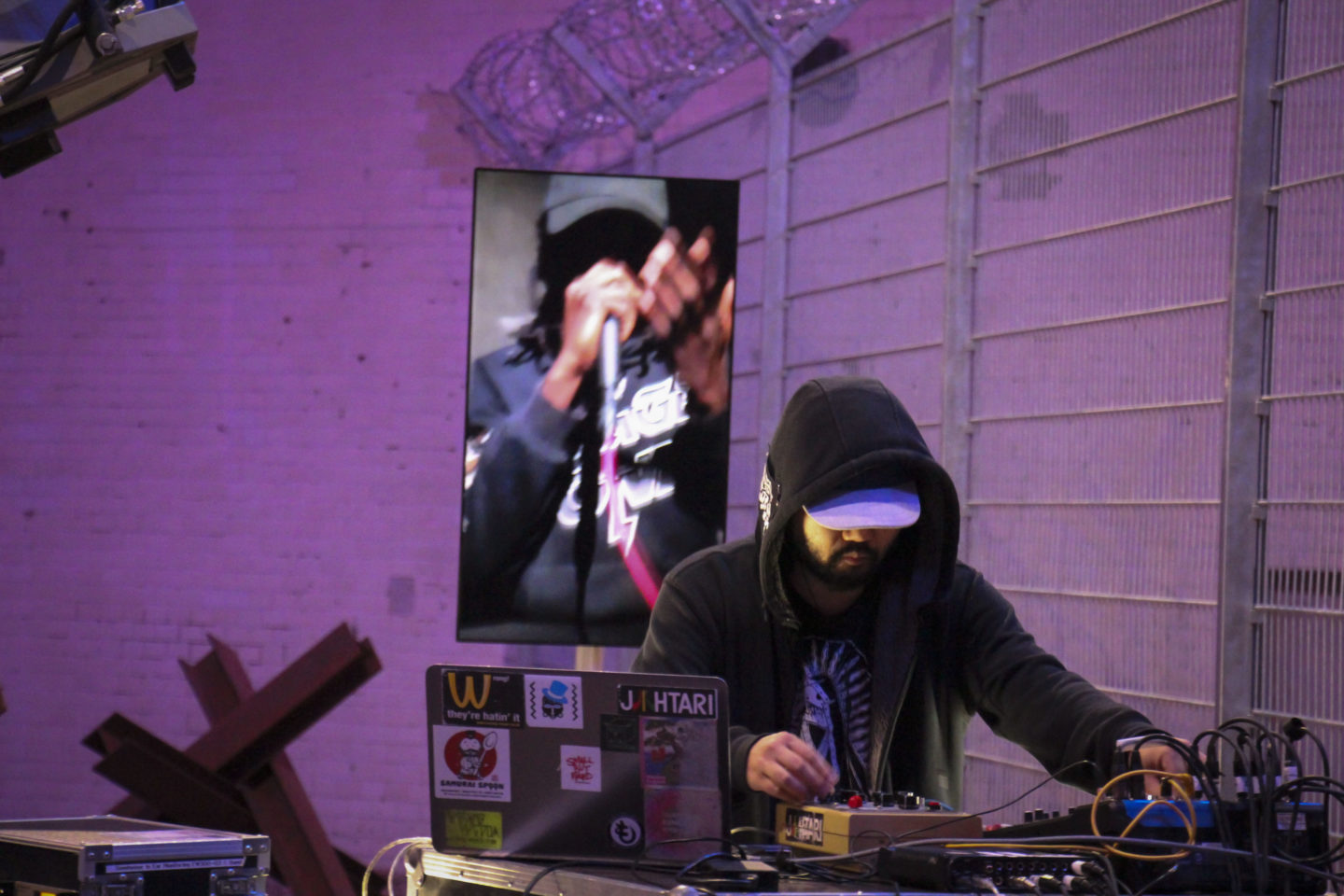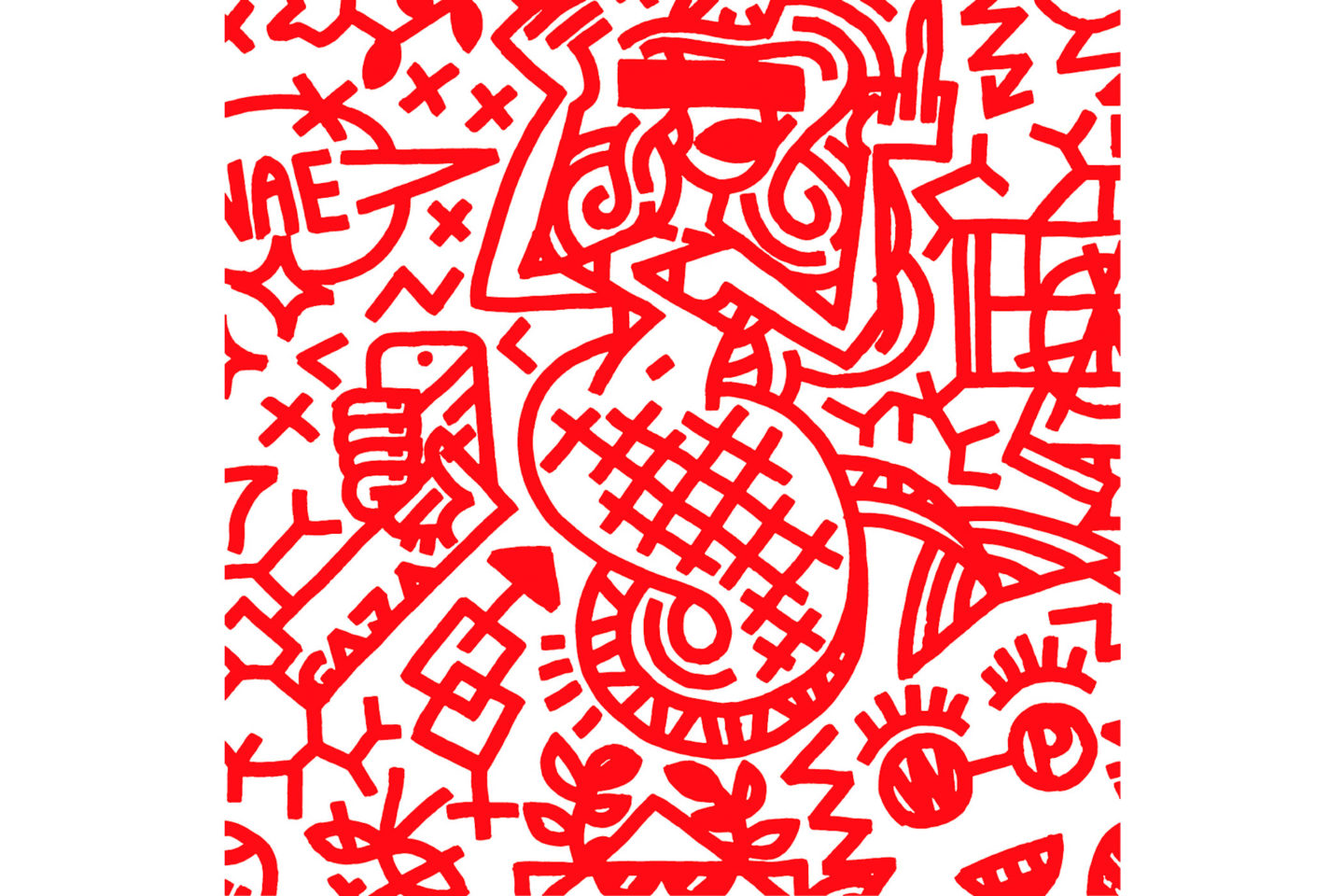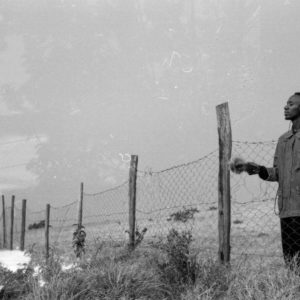Kampala is an inspiring incubator for global sounds
Alongside its Boutiq Studio in the Ugandan capital, the Hakuna Kulala label is attracting artists and producers from around the world and electrifying the electronic music scene.
Author:
27 September 2021

On a dance floor in Berlin in 2019, a club banger driven by fiery percussion and razor sharp bass explodes into life. Titled From the Cave, this take-no-prisoners construction has the crowd heaving, to the deejay’s delight. That deejay would later tell the tune’s creator, Ugandan producer Don Zilla, that he “had never seen anything like that in his entire life”.
Present that night was a Welsh artist from Bridgend named Elvin Brandhi, who was smitten with the song. Less than a month later, she would find herself in Kampala collaborating with in-house producer and Boutiq Studio manager Zilla. The resulting album, Headroof, would be released on the Hakuna Kulala label in January 2020.
Speaking to Shape Platform last year, Brandhi described her experience glowingly. “It is always so inspiring to live there and work there, amazing music coming out of every bedroom door. The studio is a metamorphic sonic laboratory. There is a really unique atmosphere of total commitment without competitiveness. I get critical feedback but never feel judged.

“My time there is a huge part of my hope in music infrastructures not becoming crushed by accelerated copy-paste, hype-chuck cultural industry,” said Brandhi. “I keep needing to return, it’s one of my homes.”
Boutiq Studio and the Hakuna Kulala label are the point of call for many global music citizens making pilgrimages to Kampala in the spirit of collaboration. Berlin-based Japanese artist Shigeru Ishihara, known as DJ Scotch Egg, also did a two-month residency at Boutiq Studio in 2019.
Ishihara told The Quietus website in June this year that in Kampala he set a daily routine of working with percussionists from midday till dusk and then with different vocalists every evening. “I’d record until I passed out,” he said.
The result is the album Tewari, released on Hakuna Kulala under the moniker Scotch Rolex in May this year and featuring Ugandan artists like MC Yallah, Swordman Kitala and Zilla.
New sounds on a sister label
The Hakuna Kulala label was born in June 2018, an offshoot from sister label Nyege Nyege Tapes, which had been putting out East African left-field electronic music from its base in Kampala since January 2017.
At the time, Nyege Nyege was gaining global attention with releases like Gulu City Anthems, a compilation of electro acholi pioneer Otim Alpha, and Sounds of Sisso, a compilation that put the spotlight on the singeli scene in Dar Es Salaam, Tanzania. But there was a need for a sister label to feature a new generation of producers from the area who were coming into their own.
These producers were Kenyan Slikback, Ugandan Zilla and Rey Sapienz from the Democratic Republic of Congo, and they would become the driving force behind the new Hakuna Kulala label.

Zilla, who describes Boutiq Studio as an “incubator”, recalls the heady days when he, Slikback and Sapienz ended up at the studio within months of each other. “Due to the vibrant energy and sleepless nights, everyone started developing their own sound. The label bosses had an idea of a sister label to Nyege Nyege to put out our stuff and that’s when the idea of Hakuna Kulala was born.”
Slikback’s Lasakaneku and Sapienz’s Hakuna Kulala EPs would be the new label’s debut releases, both dropping on the same day in June 2018. Zilla’s From the Cave to the World EP followed in March 2019, its ninth release.
From those early days the label has grown rapidly and, with a healthy back catalogue of 27 releases, it is fast becoming a presence in global electronic music.
Boarding spaceship Zilla
Zilla’s debut full-length album, Ekizikiza Mubwengula, was released in June, the same month Hakuna Kulala celebrated its third birthday. It is the producer’s first release since From the Cave to the World. Slikback has released four EPs on Hakuna Kulala and branched out to other labels too, while Sapienz has two EPs on Hakuna Kulala and an album about to drop on Nyege Nyege Tapes.
“I really take my time when I’m doing something, not only music but in all aspects of my life,” Zilla says. “I love perfection, but under the influence of inspiration.”
Listening to Ekizikiza Mubwengula, it’s clear that the album has been carefully crafted to take the listener on a journey and is not just a selection of club bangers. From the minimalist mutant marching band of opener Full Moon to the charging industrial snarl of Moving Space, Zilla inhabits a unique sound world. His is physical music – music that is intimidatingly muscular, but beyond that robustness is a deeply hypnotic state of being.
“My music is more of a mind control thing. It hypnotises the mind,” says Zilla, who talks about translating dimensions and frequencies into sound. “It’s not just sitting down to make music, but an understanding that you are a force, more like a channel, a messenger.
Related article:
“The album is not just a record to listen to, but a spaceship taking you to another dimension, somewhere you have never been before.”
Speaking about Full Moon, Zilla says it was composed while the “piercing” brightness of a full moon shone through his windows. “I was hypnotised by its beauty and I realised that there was some current of energy transcending the Earth, controlling characters of each and every living thing in different ways, including me. So I used that moment to create a memory of that revelation.”
Timid listeners will run from the harsh tones, never discovering the album’s hidden side, whereas more committed listeners will linger long enough to reap those rewards.
Taking it to the world
Zilla says he has always been fascinated with beats and remembers a percussion set from childhood fashioned out of cans and traditional drums. “I was always doing the housework at home. So, getting some free time was always a miracle for me, and when I could get it I could use it to release on the drums and jerrycans.”
A role as a keyboardist and sound engineer at his father’s church would follow and then, in 2016, Zilla began investing in studio equipment and making music. A year later, an opportunity presented itself that he grabbed with both hands: the position of manager of Boutiq Studio.
Reflecting on the way that From the Cave brought Brandhi to Kampala and resulted in their collaboration on Headroof, Zilla says it blows his mind that she arrived already aware of his music.
“We talked and sketched out a timetable. Then she accompanied me to the church where I was going every Sunday to work on sound,” he says. “We recorded my father’s sermons and started playing around with the recordings, and finally we were able to come up with those dimensional frequencies on the record.”

Zilla says meeting Ishihara was a “high-level” affair. “It felt like meeting a brother from another mother or dimension. So, working together was really easy and he is one of those people that I would love to work with again.”
On Tewari, the two producers collaborated on Afro Samurai, a blistering dub-techno soundscape that is dense with fascinating intricate percussion sounds. The song feels like the soundtrack to a horror film until it really starts to gain momentum after a minute, and it is one of many highlights on Tewari. Others are the industrial hip-hop of Juice, featuring the momentous talent of MC Yallah, and Nfulu Biswa, featuring dancehall artist Kitala.
As Ishihara explained to The Quietus, the recording sessions for the album were driven by the spirit of collaboration. “Sometimes I’d be the main guy with a laptop. People would come into the studio and we made music from nothing by just feeling the moment. Then they might get excited and start writing lyrics … Before long, all the musicians were playfully addressing each other by the title ‘sensei’.”
Tewari is an incredible piece of work, somehow integrating diverse sounds into a cohesive whole. But what is perhaps most striking about it is that so many of the productions on the album sound dense and sparse at the same time – an intricate balance that is difficult to achieve.
A mighty wave
Zilla admits to being influenced by the South African gqom genre. “[It] is a genre that I listen to a lot, especially when I want to clear up bad energy from the body, because it has a force that pushes you to work out your body in a groovy motion and sweat a bit.”
How does Zilla see the scene in Kampala in the context of gqom, Angola’s kuduro, Tanzania’s singali and Lisbon’s batida, which are all examples of how Africa has become a driving creative force in global electronic music?
Related article:
“Seeing this innovation makes me very happy,” he says. “The fact that most of these people lack resources, but they can use what they have to reach out to the world is not something to take for granted.
“This new rise is a mighty wave and it’s just the beginning. There is going to be a new resolution of sound coming out of the cradle of mankind,” says Zilla. “And I hope the whole world is ready because the gods in us are rising slowly.”


